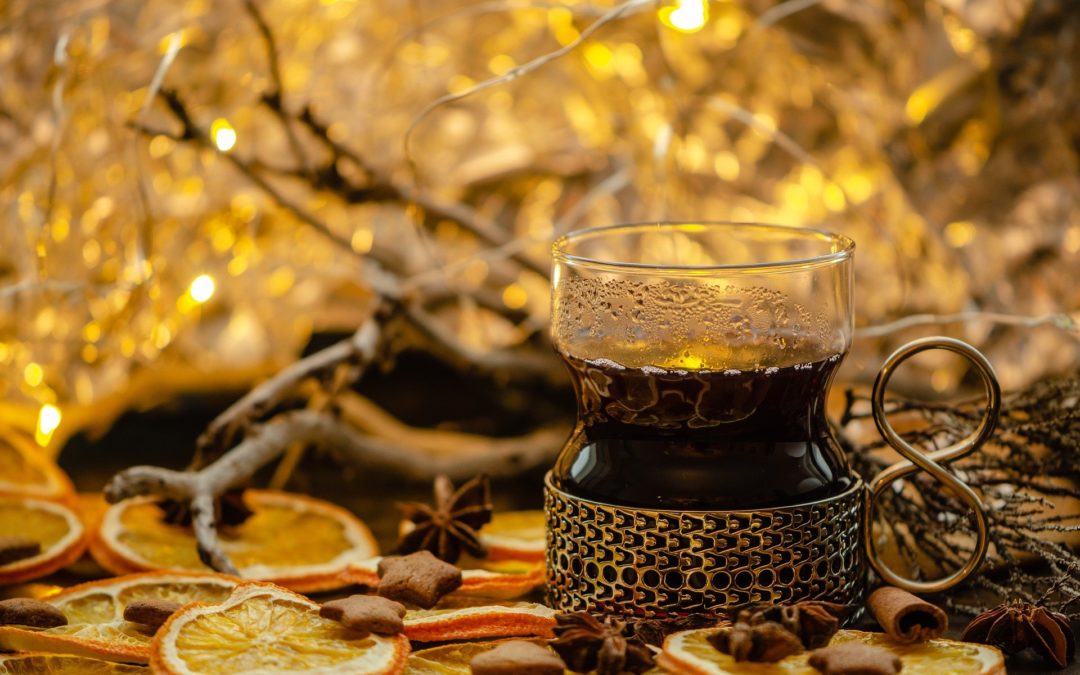Since ancient times, Vin brûlé represents Europeans’ favourite beverage during winter. What not everyone knows is that this type of beverage has really antique origins and different variations based on the place and the way in which it is made.
What are its origins?
The use of Vin brûlé can be traced in the ancient Greece and later became an important part of romans meals, called ‘conditum paradoxum‘ or ‘vinumconditum‘ to describe a type of wine flavoured with herbs and cereals, dried flowers and spices. Going forward, during the middle age it was called ‘hippocras‘ that was also referred to that type of wine mixed with spices. During the same time there was the comparison of cinnamon that was used to replace pepper, once used as a spice in the making of Vin brûlé.
Visualizza questo post su Instagram
Vin brûlé’s alcoholic content, depends on the type of wine that is used in its making and can go from 11% to 14% of alcohol and the most important thing is that its consistency changes based on the temperature and on how long its boiled during the whole process. For this reason it doesn’t exist only one recipe or type of it.
Is it the same everywhere?
Spreading through the whole Europe, every country gave this spiced wine a different name, based on linguistic differences:
Vin brûlé in Italy, Vin Chaud in France, Mulled Wine in Anglo-saxon countries (United Kingdom,The United States, Canada, New Zealand, etc), Glühwein in Germany and Glogg in Scandinavian countries.
Even if its making can be similar, it can be found a subtle difference in the type of spices used and this depends on the country it is made in, for example we can find Vin brûlé with pepper, cinnamon, fresh ginger, nutmeg or the use of honey or milk to sweeten the beverage.
Visualizza questo post su Instagram
Vin brûlé can also be made at home thanks to lots of recipes that can be found online, and you can also make it with your favourite spices and fruits to make this winter less colder and more tasty.
Here’s what you need to make the Italian version at home:
Red wine Teroldego, 1 l
Sugar 100 g
Lemon zest 1
Orange zest 1
Cinnamon 2
Cloves 8
Juniper berries 5
Star anise 1
Nutmeg as you like
Glühwein tradition in Berlin
If you live in Berlin and prefer to go for a Glühwein tour, here is a list of bars selling it to-go and the google map:
TiER, Weserstr. 42, 12045 Berlin
Monella, Weichselstraße 17, 12045 Berlin
Geist im glas, Lenaustraße 27, 12047 Berlin
Migi Würsch, Boxhagener Str. 13, 10245 Berlin
Badfish Bar, Stargarder Str. 14, 10437 Berlin
Schankwirtschaft Seeblick, Rykestraße 14, 10405 Berlin
Die Weinerei, Veteranenstraße 17, 10119 Berlin
Manifest Taproom, Oderberger Str. 15, 10435 Berlin
The Neighborhood, Möckernstraße 91, 10963 Berlin
Moloko, Lettestraße 6a, 10437 Berlin
März, Greifenhagener Str. 17, 10437 Berlin
Cafe Berio, Maaßenstraße 7, 10777 Berlin
Liebling, Raumerstraße 36A, 10437 Berlin
Herr Lindemann, Richardpl. 16, 12055 Berlin
HOME Bar, Neue Bahnhofstraße 23, 10245 Berlin
Barkett, Czeminskistraße 10, 10829 Berlin
Facciola, Forster Str. 5, 10999 Berlin
Misirlou Bar, Dunckerstraße 10, 10437 Berlin
Rixbox, Richardstraße 2, 12043 Berlin
Rubens, Mehringdamm 65, 10961 Berlin
Destille, Mehringdamm 67, 10961 Berlin
Moa – café & bar, Kirchstraße 1, 10557 Berlin
Vin Aqua Vin, Weserstr. 204, 12047 Berlin
Restaurant Simon, Auguststraße 53, 10119 Berlin
Smoobar Cafe, Grünberger Str. 79, 10245 Berlin
Plant Base – Vegan Cafe & Workshops, Prenzlauer Allee 208, 10405 Berlin
Blauer Affe, Weisestraße 60, 12049 Berlin

